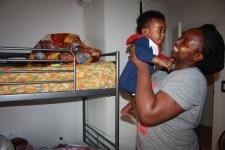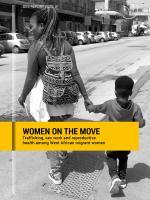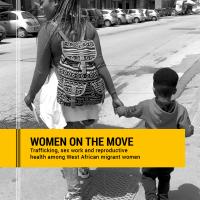Migrant women are agents, not only victims

‘I knew what I was going to do in Italy. I didn’t tell anyone in the asylum centre because here everybody judges you, but everybody knows it. All the sisters and other women who travelled with me knew that Mama Blessing brings you to Europe to work in the streets. I think everybody knows it in Benin City, maybe you don’t know if you are from the countryside because they arrive later to things. I was the one who contacted Mama Blessing. I didn’t want to marry a 62-year-old man, he was too old for me. I knew other girls who travelled with Mama Blessing; she brought so many girls to Europe. (…) I left because I had no reason to stay’ (Precious, 24 years old, Nigeria)
Precious’ words resemble the stories of many other migrant women who left their home with small backpacks, shaky plans and big desires. When we met her in Italy she said that she would have preferred to leave Benin City to work in a hair salon in Italy, as braiding hair is ’her favourite thing in the world’, but ‘work is work’.
Migrant women like Precious often find themselves involved in selling sex or other sexual services either en route to Europe or upon arrival to destination countries. These are common strategies employed to pay smugglers for the journey, to seek protection along the route from fellow migrants and to pay family old debts.
As Precious, many of the migrant women we met in this project defined themselves as labour migrants. How they define themselves is often forgotten in the migratory debate, as conflicting with the mainstream narrative about trafficking.
When it comes to the concept of trafficking in relation to migrant women working in the European sex industry, there seems to be space for two categories only: the victim of trafficking, worthy of assistance, or the criminal migrant who violated European law, worthy of immediate deportation.
Same stories, different categories
The dichotomy deliberately ignores and hides the voices of migrant women and their stories that usually fluctuate between these two extremes. To challenge simplistic narratives of trafficking we need to consider how migrant women define themselves to what they identify with.
Precious would never define herself as victim of trafficking, even if she travelled with several smugglers and she is selling sex in the outskirts of Parma, and she would never define herself as a criminal, even if she knows she arrived illegally to Lampedusa.
Defining herself as a labour migrant she reclaims the active role she has been denied and sheds a different light to her migratory experience.
Since she arrived in Italy in 2018, Precious has been reported twice to the anti-trafficking regional committee as a victim of trafficking, and both times she refused to undertake special programs for assessed victims. She applied three times for asylum, she has been rejected twice, and she is now waiting for her third appeal.
During these four years she has been categorized in different ways according to legal, political and moral principles: victim of trafficking, irregular, criminal, forced, or voluntary migrant. Some of these categories are even conflicting with each other, and they labour migration is almost never considered, yet her story has always been the same.
Selling sex in Europe is considered by many women from West Africa, and in general by women from the Global South, as a way to escape from unemployment, precariousness and the vicious circle of debt which traps their families.
It is, therefore, relevant to recognize this migration as labour migration, where women’s agency plays a focal role. Understanding migrant women as actively engaging in the migratory decision does not undermine the vulnerabilities, risks or the violence they face along the route.
In fact, migrant sex workers face substantial barriers in accessing reproductive health care as prevention, abortions, and prenatal care largely due to stigma, discrimination, judgemental treatment and a lack of health care services en route.
Considering their migratory experience as labour migration, could guide the implementation of new reforms in order to make this migratory corridor safer and regularize it. Sex work needs to be addressed as a valid labour reason to cross the Mediterranean Sea. Decriminalizing sex work means recognizing it as work, and sex workers as workers who will follow labour law.
DIIS Experts






